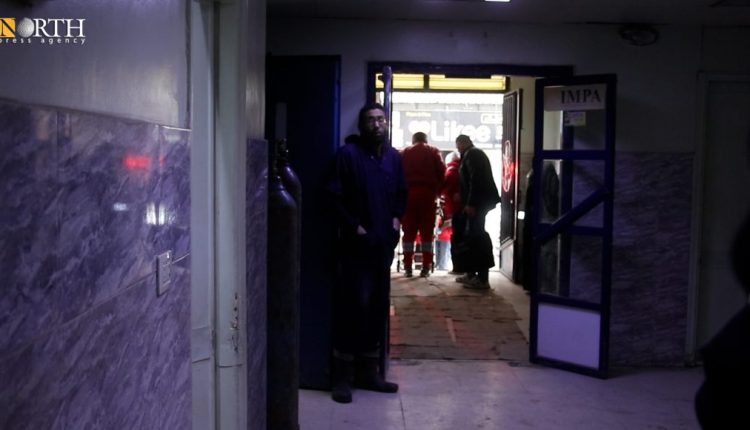QAMISHLI, Syria (North Press) – A doctor and hospital manager in the city of Qamishli, northeast Syria, warned that hospitals are about to become unable to provide services due to fuel shortages caused by the recent Turkish targeting of oil fields.
The recent Turkish airstrikes negatively impacted infrastructure, service facilities, power plants and oil fields in northern Syria, significantly affecting the health sector, according to Dr. Farat Mqdisi, Director of al-Salam Hospital in Qamishli.
The Turkish airstrikes targeted on Jan. 15 the Sweidiya gas plant in the countryside of Derik (al-Malikiyah), far northeastern Syria, knocking it out of service. The plant used to supply the area with gas and electricity.
The absence of electricity has affected healthcare centers in Qamishli. “We essentially depend on operating generators which must work for 24 hours a day,” Mqdisi said.
“Electricity provided by the Syrian government was available before the airstrikes but now its lack will negatively affect the health sector,” he added.
Mqdisi emphasized that hospitals, amid ongoing power outages, will face material and technical difficulties as generators require large amounts of fuel whose securing becomes challenging too.
Since the beginning of 2024, the northeastern areas of Syria have experienced instability due to the Turkish airstrikes that targeted 89 sites with 122 strikes on Jan. 15.
The Turkish airstrikes focused on electricity and fuel production sites, as well as centers and checkpoints of Internal Security Forces in North and East Syria (Asayish). Also, four security and military sites affiliated with the government forces were targeted.
There are three generators operating in al-Salam Hospital in Qamishli. However, due to operating for long hours, maintenance will be necessary.
“What will happen if a power generator breaks down during a patient’s surgery?” Mqdisi wondered. The worst-case scenario could unfold without a swift solution to this problem.
“This month, we will pay multiple expenses if we rely solely on power generators and fuel purchases as well as hospitals will face a crisis,” he added.
The hospital director emphasized the need to get greater support for hospitals and healthcare centers in case of any new targeting of the region.
He noted that it is the responsibility of the local authorities to prioritize the healthcare sector and ensure government electricity for hospitals and healthcare centers in general to be able to provide their services fully. Generators will not be a substitute option for government electricity but they are only a backup method for supplying power.
Mathar Abbas, Co-chair of the Health Board in Hasakah Governorate, northeastern Syria, explained that the health sector has been greatly affected due to the loss of fuel, and the reason is attributed to Turkey’s targeting of oil fields.
“The health sector has been significantly affected due to Turkish airstrikes. We have 26 ambulances in service, but there is a shortage of fuel supply for these vehicles, exposing us to harm,” Abbas stated.
The official emphasized that Turkey’s targeting of power facilities along with the outage of government electricity have greatly impacted the operation of hospitals. As we know, hospitals operate 24/7 and cannot remain without electricity. Currently, all of them are deprived of government electricity, causing a disruption in their operational system.
Currently, hospitals rely on private generators to supply them with electricity, but there are departments within the hospital that require continuous electricity, such as incubators, intensive care units, and operating rooms. Therefore, generators need large quantities of fuel on a daily basis.

